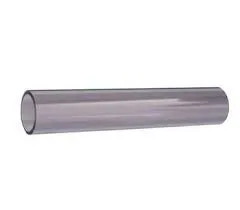Oct . 08, 2024 06:37 Back to list
pvc-m pipe
Understanding PVC-M Pipes A Versatile Solution for Modern Infrastructure
Polyvinyl chloride modified (PVC-M) pipes have emerged as a pivotal material in the realm of modern infrastructure, offering a remarkable balance of strength, durability, and flexibility. As cities expand and the demand for efficient water supply and drainage systems increases, PVC-M pipes stand out as a reliable solution for various applications.
What is PVC-M?
PVC-M, or Polyvinyl Chloride modified, is an advanced form of traditional PVC. It is produced by blending PVC with various additives to improve its mechanical and thermal properties. This modification enhances the pipe's impact resistance, tensile strength, and overall performance, making it a preferred choice for many engineers and construction professionals.
Advantages of PVC-M Pipes
1. High Durability One of the standout features of PVC-M pipes is their exceptional durability. They can withstand harsh environmental conditions, including extreme temperatures and corrosive substances, which makes them ideal for both underground and above-ground applications.
2. Lightweight and Easy to Handle Compared to other materials like metal or concrete, PVC-M pipes are significantly lighter. This attribute not only makes transportation easier but also simplifies the installation process, reducing labor costs and construction time.
3. Corrosion Resistance Unlike traditional metal pipes, PVC-M does not corrode or rust over time. This attribute ensures a longer lifespan for the piping system and reduces maintenance costs associated with replacements and repairs.
4. Cost-Effectiveness PVC-M pipes offer long-term savings thanks to their durability and low maintenance needs. The upfront costs are often lower than those for alternative materials, making PVC-M a financially sensible choice for many projects.
pvc-m pipe

5. Customizable Properties Depending on the specific needs of a project, PVC-M pipes can be manufactured with particular properties, such as varying diameters and thicknesses. This flexibility allows for tailored solutions that meet specific requirements.
Applications of PVC-M Pipes
PVC-M pipes have a wide range of applications across various sectors. They are commonly used in water supply systems, wastewater management, irrigation, and drainage systems. Their lightweight nature and resistance to clogging make them ideal for agricultural uses, while their durability caters to the needs of urban infrastructure.
In regions prone to extreme weather conditions, the ability of PVC-M to withstand high impact forces without breaking enhances the reliability of water and drainage systems. Moreover, in environmentally sensitive areas, the use of PVC-M can mitigate the risks associated with material degradation and pollution.
Environmental Considerations
While PVC-M pipes are widely recognized for their benefits, it is essential to consider their environmental impact. The production of PVC requires careful management of resources, and efforts are underway to improve sustainability in the manufacturing processes. Additionally, PVC-M pipes are recyclable, which enhances their appeal in an increasingly eco-conscious world.
Conclusion
In summary, PVC-M pipes represent a significant advancement in piping technology, offering numerous benefits that cater to the various needs of modern infrastructure. Their strength, cost-effectiveness, and versatility make them an excellent choice for engineers and contractors looking for reliable piping solutions. As we continue to develop our urban environments, the role of materials like PVC-M will be pivotal in supporting sustainable growth and ensuring efficient water management.
-
High-Quality PPR Pipes and Fittings Durable ERA PPR & PVC PPR Solutions
NewsJul.08,2025
-
Black HDPE Cutting Board - Durable, Non-Porous & Food Safe HDPE Plastic Cutting Board
NewsJul.08,2025
-
High-Quality CPVC Panel Durable HDPE & PVC Panels Supplier
NewsJul.08,2025
-
Double PE Welding Rod Supplier - High Strength, Durable & Versatile Welding Solutions
NewsJul.07,2025
-
High-Quality PVC-O Pipe Supplier Durable 75mm PVC Pipe & Connections Leading PVC Pipe Company
NewsJul.07,2025
-
HDPE Drainage Pipe Supplier – Durable & Corrosion-Resistant Solutions
NewsJul.06,2025

